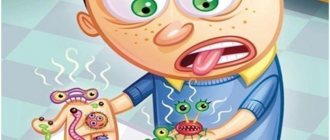Description
Many perceive pathology as a feature of temperament. Melancholic people are constantly sad; their dreamy-romantic mood turns into a depressed mood. This can be affected by cloudy, rainy weather, or being in a dark room for a long time.
But!!! For a melancholic person to come to life again, it is enough for him to tell a funny joke or listen to positive music. Even a kind smile helps you enjoy the world again.
But with hypothymia, everything described above is ineffective. A bad mood completely covers a person, his actions, feelings. It is worth noting that this is not a disease, but at the same time it can cause drug addiction, suicide, and alcoholism.
Hypotymia can signal a serious mental illness - asthenia, hypochondria. The symptom accompanies apathy, schizophrenia, and cyclothymia.
Most often, hypothymia is one of the signs of depression, and it is associated with oncology, severe pathologies, stress, and mental trauma.
Psychotherapy for low mood
Hypotymia will not go away on its own with medication alone. To achieve a normal state of health, long-term psychotherapeutic support of the patient is required. This is necessary to resolve his internal conflicts, problems of social adaptation, acquisition of constructive communication skills, development of the volitional sphere and goal setting.
At the beginning of work, it is important for the psychotherapist to determine the patient’s level of self-worth and self-esteem. A normal perception of oneself and one’s characteristics motivates a person to live on and achieve something.
In advisory support, such areas as Gestalt therapy, cognitive-behavioral direction, and rational psychotherapy are used.
It is important at each psychotherapeutic session to make it clear to the patient that his problem is clear to the doctor and can be dealt with. You can use optimistic formulations like: “All mood disorders pass and your condition is also curable!”
The psychotherapist uses Gestalt therapy techniques for treatment in order to work with a person’s emotions, set him up for recovery and readiness to improve his condition. What does readiness mean? When a person is in a depressed, melancholy state for a long time, he is sure that he will never succeed in anything in life. But as a result of treatment, “windows” appear - a clearing in his condition, which can be used to improve social and labor adaptation. It is important for a psychotherapist to help see that the condition is slowly but improving.
Cognitive-behavioral techniques help consolidate the skills acquired in psychotherapy sessions, change the perception of oneself, a person’s thinking becomes more rational and optimistic.
Author of the article: Lyudmila Leonidovna Redkina, psychologist
Symptoms
The following signs indicate the disease:
- Constant melancholy, bad mood, sadness.
- Pessimism, low self-esteem, skepticism.
- Laziness, lack of desire to change anything in life.
With depression, you are constantly in a bad mood, but with the endogenous form, hypothymia is persistent.
Some people have other symptoms:
- I've been feeling sad for more than a month.
- There is no reaction to a positive stimulus, it is difficult to return to a good mood.
- A person suddenly loses weight and loses his appetite.
- Problems with rest. The patient cannot fall asleep, then he has nightmares, restless, superficial sleep, which prevents him from resting.
- Increased sleepiness. A person always wants to sleep, sleep helps to get away from problems and unpleasant thoughts.
- Motor and speech activity decreases. The patient becomes withdrawn, fixated on experiences, thoughts, constantly sits on the phone, tablet, and completely refuses to contact people.
Who's at risk?
Most often, children, adults after divorce, after the loss of a loved one, as well as those who had to endure a tragic situation are susceptible to hypothymia.
Children develop depression when they are abused. They have a negative attitude not only towards themselves, but also towards others. These symptoms are more characteristic of the reactive type of depression. But the endogenous one develops due to socio-ecological and hereditary factors.
In addition, environmental reasons may also play a role. An unfavorable environment negatively affects health and immunity. It negatively affects the body's defense mechanisms, leads to various infections, and disruption of the emotional background.
Causes of low mood
The causes of depressive disorders are not fully known. Various factors can provoke such behavior, ranging from social disadvantage to external economic and political problems.
If we consider this pathological decrease in mood from the point of view of a symptom of depression, then its etiology will also not be fully understood. There is a high probability of a hereditary factor in the development of melancholy and depression.
Hypotymia can occur against the background of chronic somatic diseases. Psychiatry also introduced the concept of environmental stress as a cause of pathology. This concept refers to a combination of psychosocial, socio-ecological and ecological factors. Their effect on the body leads to disruption of defense mechanisms, decreased resistance to stress, and the emergence of psychological problems.
Loss of interest in life
In this case, problems arise in the cognitive sphere. A person is not interested in the world around him, does not want to listen to news, read books, what he has is enough for him, but he does not want anything new. Such people are always sad and live in their own world.
Due to the fact that mental, motor, and speech activity decreases, a person doubts his capabilities and abilities. He is sure that a nonentity completely loses the meaning of life.
In difficult situations with hypothymia, a person believes that he cannot live normally, engages in self-flagellation, blames himself, and wants to commit suicide.
Due to the fact that a person does not see further prospects, he stops making plans and dreams. It is dangerous when neurological, psychosomatic, cardiac, gastric, and intestinal symptoms still appear.
The patient suffers from strong pressure in the chest and abdomen, feels lethargy, weakness, and apathy. In some situations, even taste changes. In addition, constipation and nausea begin to bother me.
Symptoms of vital melancholy
Hypotymia is not identified as a separate nosological entity in psychiatry. This is the main syndrome-forming symptom of depression, accompanies persistent low mood and other mental illnesses - for example, hypochondriacal, obsessive-phobic syndrome. This condition can manifest itself subjectively in different ways, but more often the following symptoms are identified:
- Reduced physical activity - a person reduces his social contacts to a minimum. If he works, then besides the trip to work, little else will interest him. He spends less time doing physical labor; his permanent place is either a sofa or a chair at the computer.
- Decreased mental activity – the activity of cognitive processes in the human brain decreases. He ceases to be interested in news, he lives with the knowledge he has already acquired, and does not want to receive new ones. Over time, he begins to remember poorly, is often distracted, and finds it difficult to analyze and draw conclusions.
- Reduced self-esteem - as a result of such changes within, a person loses faith in himself, in the fact that he will be able to achieve something. As a result, there is an imbalance in the picture of his world (disharmony in the structures of the self-concept), he gradually loses his significance. The extreme degree of this symptom is self-flagellation, self-blame, and so on.
- Loss of meaning in life or prospects for the future. Assessing his present, the patient is sure that nothing good will ever happen, and that he has made too many mistakes in the past.
- The disorder is also characterized by the manifestation of psychosomatic symptoms: painful sensations including pain in the chest and abdomen. A person feels weakness, lethargy, a state of depression, laziness appears, and there is no joy.
- Weight loss, loss of appetite, possible change in taste, constipation, and so on.
- Sleep disorders - some have superficial sleep, others sleep constantly.
- Persistent decrease in mood for 2 or more weeks.
Consequences
Emotional distress almost always ends in unpleasant consequences. Due to worsening mood, problems arise with the surrounding society.
All the negativity has a bad effect on the psyche, and in the future everything ends in a nervous breakdown and suicidal mood. A person does not see the bright colors of life, and thinks that he is not needed at all in this society.
Apathetic people push away. With hypothymia, the patient's performance decreases, he becomes incapable, absent-minded, and cannot perform serious work.
After some time, cognitive abilities decrease, subsequently problems with attention and memory arise, a person cannot concentrate on an event or an important matter. At the same time, many are not able to analyze the situation, think logically, or draw conclusions.
Treatment methods
If hypothymia accompanies an endogenous type of depression, it is necessary to take antidepressants and sedatives. When a person is constantly sad and has increased anxiety, it is recommended to take Fluoxetine. But you need to take calming antidepressants for increased irritability - Coaxil, Sertraline.
If you have a mild form of depression with a bad mood, sadness, you should not take antidepressants. Enough soothing herbal remedies - St. John's wort extract, motherwort tincture, you can drink Novo-Passit.
It is especially important to contact a psychotherapist in a timely manner, who will help you understand that all problems can be solved. The patient must understand: there is only one life and there is no need to overshadow it with a bad mood. Try decorating it with bright colors!
Treatment of melancholy with medications
Today, the scary word “antidepressant” is no longer so scary: doctors have reduced to a minimum the side effects that it causes in the body. Moreover, in the first days after taking it, patients feel much better. If antidepressants are used correctly, the effect will follow in a short period of time.
When this disorder occurs, anti-depression medications help restore sexual function.
The following groups of antidepressants are used to treat pathologically low mood:
- drugs that have a sedative effect;
- balanced action medications;
- predominantly stimulant antidepressants.
There are old generation drugs (TCAs) and new ones (SSRIs). At the moment, the latter have an advantage, since TCAs cause a number of side effects, and their dosage is difficult to select so that there is a therapeutic effect and there are no adverse reactions of the body.
Read more about how competent treatment for depression should be carried out, as well as what groups of medications can be prescribed.











